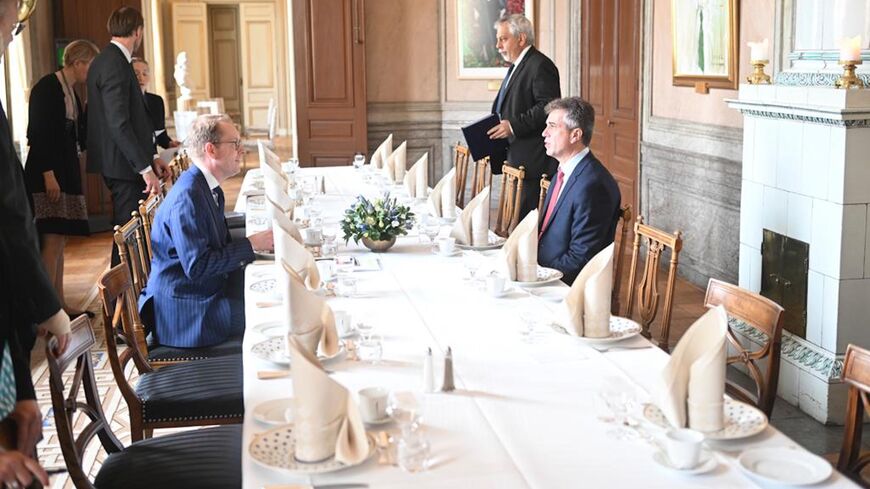PARIS — On a visit to Stockholm on Monday, Israeli Foreign Minister Eli Cohen discussed with his Swedish counterpart Tobias Billstrom Iranian militant activity in the Middle East and in Europe.
Their meeting came just five days after the Swedish Parliament called on the European Union to blacklist the Islamic Revolutionary Guard Corps (IRGC) as a terrorist organization.
A statement issued by the Israeli Foreign Ministry noted this was a first visit of an Israeli foreign minister to Stockholm in 22 years, marking a new page in bilateral relations.
The ministry said, bilateral relations, Iran's threat and combatting anti-Semitism were discussed. An Israeli diplomatic source noted that Sweden, currently holding the presidency of the European Union, is central to efforts to change attitudes in Europe toward the Iranian nuclear threats and what Israel sees as Iranian destabilizing activities.
On May 10, the Foreign Affairs Committee of the Swedish Parliament called on the government in Stockholm to push an EU decision to recognize the IRGC as a terror group. The parliament’s decision is not binding and much like other European Union member states, the Swedish government is not expected to follow through on it. Such a move would clearly lead to Tehran severing ties with the country in question. Still, the May 10 decision adds another positive layer to the process of rapprochement between Israel and Sweden, ongoing for the past two years.
For several years, Israel considered Sweden one of the leading EU countries in pro-Palestinian policies alongside Ireland, Belgium and to a lesser extent France. In 2014, Sweden was the first EU member to recognize the state of Palestine.
But on September 2021, after the establishment of the Israeli government under Prime Minister Naftali Bennett, Foreign Minister Yair Lapid spoke on the phone with his Swedish counterpart Ann Linde, ending the long diplomatic rift between the two countries. Israeli Ambassador to Sweden Ziv Nevo Kulman has been nurturing bilateral relations since that period.
Sweden's policies on the Palestinian issue, the main point of disagreement between the two countries for many years, appears to stay consistent. Sweden has also been very active in the past decade on battling antisemitism and for Holocaust education, efforts much appreciated by Jerusalem.
Senior Swedish Parliament member Mikael Oscarsson of the Christian-Democrat party participated in a Monday meeting with Cohen at the Swedish Parliament with speaker Andreas Norlen. He told Al-Monitor that for many years, the relationship between Israel and Sweden was one of the toughest in the EU, but that changed dramatically under Linde, who visited Israel in late 2021.
"Israel and Sweden have much in common. We both deal with issues of immigration, for instance. Sweden is now facing security challenges over the war in Ukraine, and Israel has a lot of experience with that. We can work together on high tech. At the meeting, Minister Cohen told us he was hoping to open a new era in bilateral relations, and I believe the time has indeed come for that," said Oscarsson.
Sweden’s policy on Iran is a rather a new issue in discussions with Israel. Sweden has been one of Europe's top campaigners against Iran's human rights violations, partly because of the Iranian refugee community welcomed in Sweden in recent years and especially since the outbreak of the Tehran demonstrations.
Iran's execution of Iranian-Swedish Habib Chaab on May 6 shocked the Swedish population, prompting the Swedish Parliament to blacklist the IRGC. While Israel considers the move an internal Swedish matter, it praised it as a step in the right direction.
Oscarsson told Al-Monitor that he and his party have been working for years for the EU to blacklist the IRGC, and he voted in favor of the decision on the proposal adopted last week by the parliament.
"The Iranian regime is a terror entity, threatening not only Israel but also Europe. This is definitively a concern we share with Israel," noted Oscarsson.







